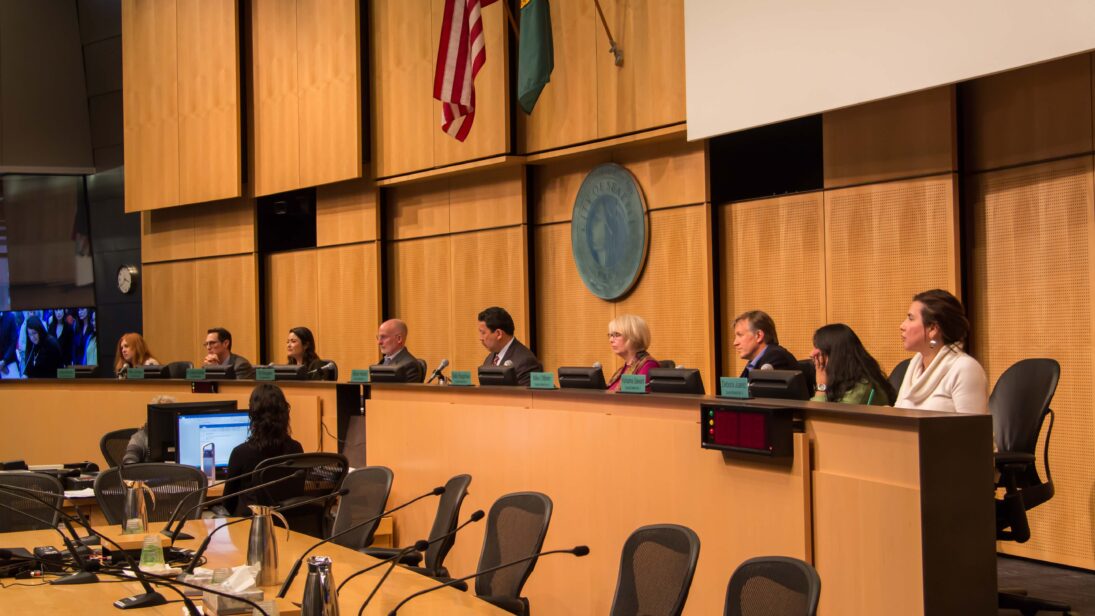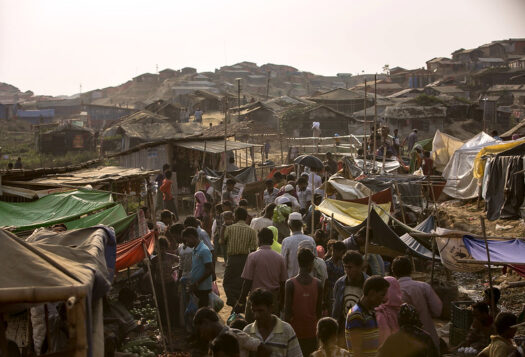
2023 was a critical year for anti-caste campaigners in the United States and Canada. Months of campaigning on offline and virtual spaces resulted in the prohibition of caste discrimination in some parts of the United States and Canada, but more progress must be made.
Half of the Indian Americans interviewed in a report commissioned by Carnegie Endowment for International Peace (CEIP) stated that they identify with their caste, indicating that caste identities have somewhat remained intact in the diaspora. Caste discrimination in the diaspora is part of the moral baggage that South Asian communities export from their place of origin. The institution, rooted in notions of impurity and pollution, is deeply entrenched with patterns of discrimination, hierarchy, and social rejection of “lower castes” such as Dalits (known as “untouchables”).
While existing anti-discrimination laws in the West prohibit prejudice based on race, religion, sex, and disability, they may not be sufficient to address caste discrimination issues specific to the Indian diaspora. Indeed, the forces of globalization and modernity have partially disrupted the traditional characterization of caste as a means to provide social order, but some of these attitudes have transcended borders. Anti-discrimination laws in North America must adapt to these new social realities and take caste discrimination out of a legal gray area.
Anti-Caste Campaigns Gain Visibility But Mixed Outcomes
The anti-caste movement in North America has gained momentum and entered mainstream media in recent years. The issue may be gaining greater visibility given that the South Asian community is the fastest-growing among Asians in the United States and Indians are the second largest immigrant group after Mexicans. Another reason for the recent popularity of the anti-caste movement could be the internationally reported protests against identity-based discrimination in India following the government’s proposal of several discriminatory bills, including the Citizenship Amendment Act and the National Registry of Citizens in 2019. While anti-caste campaigning is specific to a unique cause, it is part of a broader effort to tackle social and political discrimination amidst the emergence of Hindu revivalism by the ruling Bhartiya Janata Party in India.
Anti-discrimination laws in North America must adapt to these new social realities and take caste discrimination out of a legal gray area.
Incidents of caste discrimination in the United States shed light on the hidden politics of caste in various spheres of American life, including the workplace, housing, and social interactions. Two Indian American upper-caste managers at Cisco were accused of caste discrimination by a Dalit engineer in 2020. Although the case was eventually dropped and submitted in a county court, it created momentum for several South Asian employees in the United States to come out about similar discrimination in their workplace. The case also prompted 30 female engineers to submit a joint anonymous letter detailing how they had been subjected to caste discrimination in the technology sector.
Equality Labs picked up the conversation and published a report on caste in the United States, which concluded that 60 percent of Dalit immigrants experienced condescending comments due to their caste. Thenmozhi Soundararaja, the co-founder of Equality Labs, shared that most of her upper-caste Indian professors did not want to assist with her projects when she was studying at UC Berkeley. She and her family have also faced many rape and death threats for her anti-caste advocacy, which compelled her to shift into a safe house for some time. Several other organizations and individuals in North America, including the South Asian Bar Association of North America, the Coalition of Seattle Indians, and Ambedkarite groups, have campaigned in offline and online spaces for legal interventions. These organizations have orchestrated hunger strikes, organized demonstrations, published reports and statements, hosted workshops, engaged the media, and campaigned online to raise awareness and consolidate support for the movement.

The campaign saw its efforts pay off when Seattle took a historic step by becoming the first city in the United States to identify “caste” as a protected group and the first jurisdiction outside of South Asia to adopt legislation that provides “protections against discrimination based on an individual’s caste.” The new law set a precedent that has resulted in multiple other organizations in cities across North America proposing similar legal interventions. The Toronto School Board followed suit by passing an anti-caste law in Canada in March 2023 and has also requested the Ontario Human Rights Commission to institutionalize protections to tackle caste discrimination. However, there has been pushback on the need for a separate law in some places. After months of campaigning by activists and a public hearing, California Governor Gavin Newsom said an anti-caste discrimination bill was “unnecessary” and vetoed it.
“So-Called Caste”: Caste Denial in the Diaspora
Some diaspora groups in North America, including those affiliated with the Bharatiya Janata Party (BJP) and its parent organization, the Rashtriya Swayamsevak Sangh (RSS), are actively opposing efforts to criminalize caste discrimination by denying its existence or characterizing it as a colonial trope. The Panchjanya, an RSS-affiliated magazine, criticized the law that was passed by the Seattle City Council in 2023, calling it “Hinduphobic.” This point has been echoed by the Coalition of Hindus in North America (CoHNA), who have accused the anti-caste movement of racism and singling out Hindu Americans.
While caste denialism is a complex phenomenon and has historical roots, there is a small but consistent lobby of academics and advocacy groups who support S.N. Balagangadhara’s claim that caste, and by extension caste discrimination, does not exist. Balagangadhara and his followers argue that research on secularism, Hinduism, and caste is the result of European colonial distortions and falsifications created by Protestant Christianity. For them, the historical literature on India is not only erroneous but a Western conspiracy to undermine and defame India.
Anti-caste campaigners should not lose momentum and push for similar legal protection in other states, cities, and institutions.
The CoHNA contends that the average American continues to associate caste with Hinduism and India, creating a bias that could result in discrimination against Hindus. However, the lack of public awareness of the distinction between caste and Hinduism as a whole is not a reasonable argument to hinder efforts on legislating anti-caste discrimination. The caste system exists beyond India and Hinduism; in the Sinhala-Buddhist community of Sri Lanka, it influences marriage, worship, and the selection of political candidates. There is both institutional and non-institutional discrimination against Dalits in Nepal, given that the community is underrepresented in government and also experiences violence, exclusion, and marginalization in society. While Balagangadhara’s politics of affront has some appeal in the diaspora, it has gained limited traction in India.
Widening the Space for Greater Support
As the demographic configuration of North America changes due to immigration, anti-discrimination laws need to adapt to new identities and social realities. At this moment, caste is in a legal gray area, unlike other protected categories within the diaspora. Invoking existing legislation on race to address caste discrimination is not sufficient because it could result in confused and inconsistent implementation. A specific law is imperative to provide legal protection and resources to those who have been subjected to caste discrimination.
Although the anti-caste bill that was not signed into law in California was a setback for campaigners, the movement has made some important gains. Anti-caste campaigners should not lose momentum and push for similar legal protection in other states, cities, and institutions. Advocacy groups must continue to document the experiences of those facing caste discrimination and other forms of prejudice, increase awareness, engage the public, media, and governments, counter misinformation and disinformation, and make their findings accessible to the public.
Advocacy groups may also consider broadening their efforts by informing mainstream American society, particularly those who conflate caste with Hinduism, that the phenomenon is not limited to India and Hinduism but transcends religions and communities in South Asia. The movement would also benefit from surveys that assess whether public awareness of caste has changed. These efforts might help convince opponents of anti-caste legislation within the diaspora to rethink their position.
The author would like to thank Nazneen Mohsina for reviewing earlier drafts of the article.
Also Read: Exploring the BJP’s Role in the Manipur Conflict
***
Image 1: Seattle City Council via Wikimedia Commons.
Image 2: Lady Justice via Unsplash.


